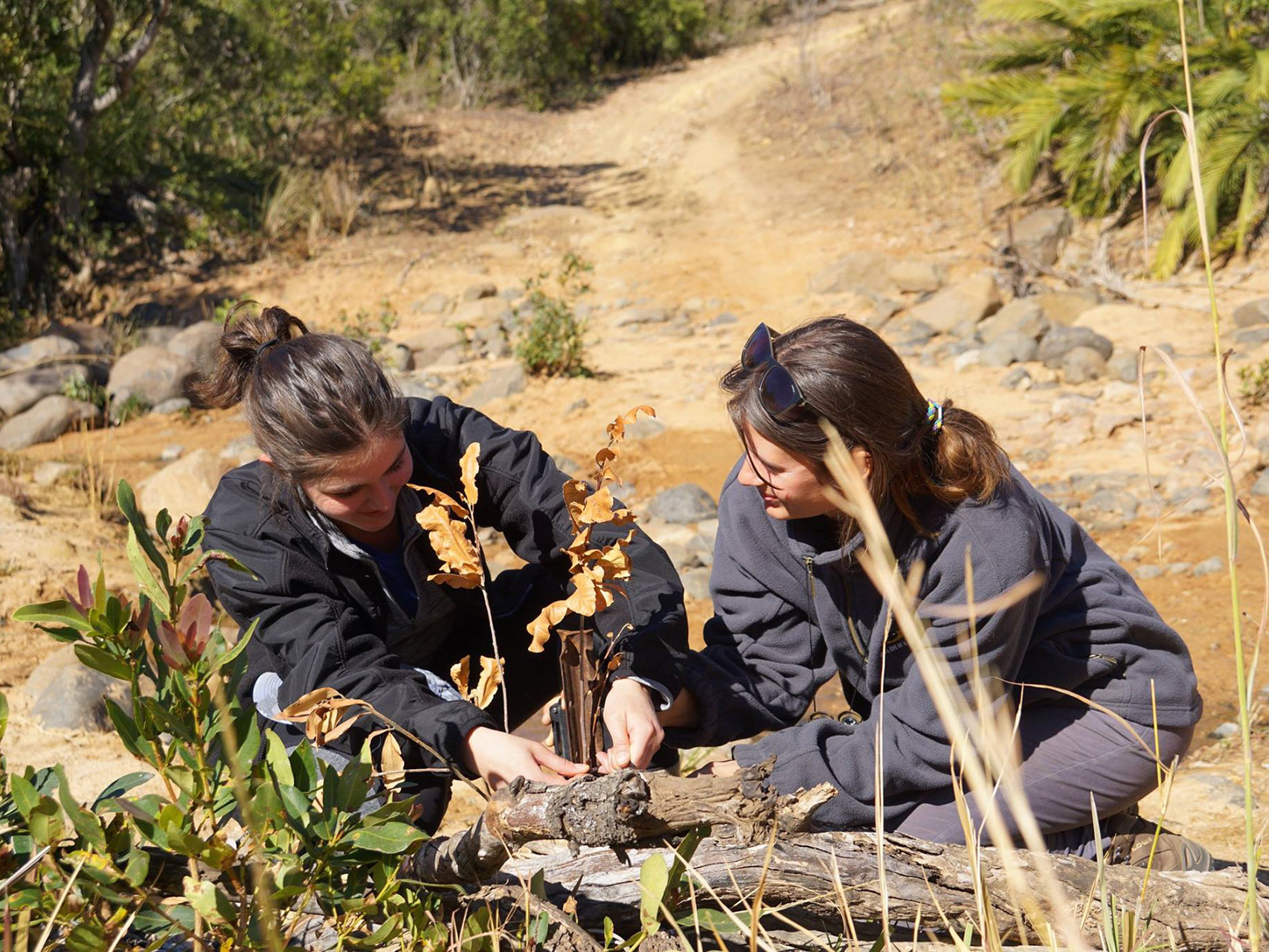Impossible Burger. Image licensed from Adobe Stock.
Introduction
In 1973, the establishment of recombinant DNA technology gave birth to the field of synthetic biology (SynBio), which has developed into an innovative phenomenon. Its rapid growth has left very little room for the examination of its moral implications and conservation value. Therefore, few rules and laws addressing these points have been introduced. This situation has allowed SynBio pioneering companies, such as Impossible Foods, to abound. The stated objective of many of these firms is to create synthetic food products that arise from methods that are more sustainable and eco-friendly than those of present farming practices. Impossible Foods, for example, claims that it aims to synthetically produce meat analogs, such as its Impossible Burger, in the most sustainable and efficient way possible. But, are these products actually benefiting the planet and its inhabitants? Or are they causing more detriment? This topic is quite controversial since there are countless potential ethical and political ramifications of implementing SynBio in food production. Some potential advantages include increased sustainability in food production, animal welfare rights, and wider food distribution. Some prospective shortcomings include biosafety hazards, economic feasibility, and overall energy usage. Although SynBio nutriments, such as the Impossible Burger, may have numerous drawbacks, they aspire to feed the exploding human population without further imperiling the planet.
What is the Impossible Burger?
Synthetic biology has primarily been used as a means to further study living systems in hopes of discovering more about how they function. To do so, many synthetic biologists attempt to create living systems out of non-living materials (Synthetic Biology: An Introduction, 2). However, not all synthetic biologists are interested in asking questions about the nature or history of life. Some yearn to achieve “full physiological and developmental control over it, developing new forms at will and as needed” (Campos, That Was the Synthetic Biology). Impossible Foods is a company that seeks to accomplish this control through redesigning life for the benefit of humankind and the Earth. As their website highlights, current meat production methods are taking an enormous toll on the planet. Thus, using SynBio techniques to replace animal protein with plant protein may be a viable solution to these agricultural obstacles. Impossible Foods hopes to address the exacerbating climate crisis and expanding human population by feeding future generations in a healthier, more sustainable fashion. Through its products, the firm strives to create an efficient way to deliver protein to the world, especially to those who may not have access to such resources. In other words, Impossible Foods wishes to improve life on Earth through SynBio aliments.
Gas Chromatography-Mass Spectrometry. Source: Wikipedia.
To reach this goal, Impossible Foods needed to create a near-perfect meat analog. However, genetically engineering plant-based products to taste, smell, look, and even feel like ground beef is no easy task. The team spent five years researching what makes meat unique and turned to the plant sphere to attempt to recreate this experience for meat lovers. They used a gas chromatography-mass spectrometry method to separate, identify, and quantify the chemicals of beef (Simon, Inside the Strange Science). Once the individual compounds were isolated and identified, the scientists then found plant-based sources that were similar to meat complexes. These plant-based chemicals and proteins were then engineered to taste, feel, and look more similar to meat ones. The final ingredients include: 1) wheat protein that gives the burger a firm and chewy texture, 2) potato proteins, which allows the burger to hold water and transition from a softer state to a more solid one during cooking, 3) coconut to create a fatty texture, and 4) soy leghemoglobin for heme, which is the primary element that gives the burger the flavor of meat as well as makes it smell, sizzle, and bleed (Impossible Burger). The addition of heme is vital as it is largely abundant in animal muscles. It is the basic building block of all life on Earth, giving blood its red color and helping carry oxygen in living organisms. Heme is integrated into the burger by taking genes that code for the soy leghemoglobin protein and inserting them into a species of yeast called Pichia pastoris. A tiny machine is then used to genetically engineer the yeast through a fermentation process. The yeast is then fed modified sugar and minerals to prompt its growth and replication, promoting the production of heme with a fraction of the carbon footprint of field-grown soy (Simon, Inside the Strange Science). Through this intricate procedure, Impossible Foods strives to create a meat analog that positively impacts climate change, conserves natural resources, and respects animal rights.
Ethical and Political Ramifications
Benefits
SynBio food products, such as the Impossible Burger, have countless ethical and political implications. As Impossible Foods claims, “relying on cows to make meat is land-hungry, water-thirsty, and pollution heavy” since animal agriculture uses 30% of all land and 25% of all freshwater on Earth (Impossible Burger). Furthermore, it creates just as much greenhouse gas emissions as all of the world’s cars, trucks, trains, ships, and airplanes combined. Manufacturing a plant-based meat analog in a laboratory avoids all of these negative outcomes and is still meant to give one the experience of a traditional burger. In comparison to beef farms, Impossible Foods affirms that “the Impossible Burger uses 95% less land, 74% less water, and creates 87% less greenhouse gas emissions” (Impossible Burger). Moreover, these SynBio nutriments are even viewed as a form of animal welfare activism as no animals are used in the construction of these plant-based burgers. If products, such as the Impossible Burger, are applied on a national and global scale, then many may turn away from a meat-based diet and may begin to adopt a more plant-based, eco-friendly one instead. An Oxford study reveals that a worldwide shift away from animals and toward plant-based diets would decrease premature global mortality between 6-10% with most of the benefits coming in the developing world (Friedrich, Nerds Over Cattle). In a time when the human population is rapidly growing and global climate change is heightening, humans need to acknowledge and work on achieving more sustainable methods of food production, especially since it is expected that there will be 9-10 billion people by 2050 (Friedrich, Nerds Over Cattle). Executing sustainable SynBio methods in food production will have an evident global impact as the food industry will largely shift. Politicians and the general public will become more aware of the harsh ecological and environmental consequences of our actions, especially within one of the largest commercial markets, the agricultural industry. If humans continue their global reliance on a system of food production that is so vastly inefficient and polluting, then quite simply, humans are not going to be able to feed the world and a climate catastrophe will be unavoidable. “Where food was concerned, the synthetic once augured engineered solutions to social problems framed as natural ones – overpopulation, food shortages, overconsumption, and diseases of civilization” (Roosth, 20).
In addition to environmental benefits, Impossible Foods declares that the Impossible Burger has health benefits since it has more protein, less total fat, no cholesterol, and fewer calories than a similar-sized beef burger (Impossible Burger). Furthermore, SynBio nutriments, such as the Impossible Burger, have positive economic ramifications and have been continuously contributing to economic growth. The annual market is skyrocketing – “as of 2006, its overall annual market was $600 million and between 2005 and 2010 alone, synthetic biology researchers received over $430 billion from US government” (Roosth, 2). This goes to show how rapidly the SynBio industry is growing and how large its potential influence may be on the commercial market. In addition to economic implications, the Impossible Burger may be used as a form of scientific enlightenment. Through the construction of this plant-based burger, further knowledge of how the natural world functions may be unearthed and may give humans a better understanding of the world. This newfound knowledge can be applied in the name of innovation and can be used to benefit humankind and the planet. Many view products like the Impossible Burger as being a bite into the future – a future in which humanity has somehow managed to deliver protein to the world and feed an exploding population without further imperiling the planet with more livestock who emit tons of methane gas and use endless resources.
Environmental benefits of the Impossible Burger. Source: Impossible Foods.
Drawbacks
Although there are many ethical and political advantages to applying plant-based technologies, there are obvious drawbacks to using laboratory-generated foods. With the recent expansion of SynBio, there is a possible need for new regulations on biosafety, biosecurity, and product development (Synthetic Biology: An Introduction, 6). Impossible Foods is attempting to create meat substitutes, yet, ultimately, the products are not meat and the health implications are largely unknown. Along these lines, the FDA has repeatedly sought proof of safety for one of the key ingredients in the Impossible Burger, heme (Quora, How the ‘Impossible Burger’). However, the FDA has failed to do so and has subsequently disapproved the product for food consumption as it may be an allergen. Through this, it came to light that the FDA’s approval was never even required in the first place since food manufacturers can self-affirm ingredients as being safe under the agency’s Generally Recognized as Safe (GRAS) program.
“Any substance that is intentionally added to food is a food additive that is subject to premarket review and approval by FDA…unless the use of a food additive may be GRAS either through scientific procedures or, for a substance used in food before 1958, through experience based on common use in food" (Quora, How the ‘Impossible Burger’).
With this in mind, Impossible Foods claims that humans have been eating this kind of heme for hundreds of thousands of years as its protein structures are similar to natural ones. However, this argument is patently false as it is a novel ingredient that has only emerged in the last few years. To further top it off, the FOIA documents reveal that up to a quarter of this heme ingredient is composed of 46 unexpected additional proteins, some of which are unidentified and none of which have been assessed for safety (FDA: Fake Meat GMO Burger). Many anti-SynBio activists believe that regulators’ reliance on the concept of substantial equivalence is false and risky, especially since regulations don’t require the company to disclose the results of its own ‘safety’ tests. Consequently, one never really knows what testing was done unless, or until, more whistleblower documents appear. Or, in the extreme case, someone gets very sick or dies. Other claims, such as those in Impossible Foods’ nutrition data, suggest that its burger has more iron than a comparably sized beef burger, which on the surface appears to be true. However, some aspects of the matrix may be undigestible and may even be a health hazard. Impossible Foods further declares that its ingredients are all 100% natural and plant-based, yet, the burger is highly processed in a vat and is even plasticized using the same extrusion process as plastic (FDA: Fake Meat GMO Burger). Since SynBio products are designed and built rather than grown and harvested, many argue that it is artificial and should not be consumed. This notion may generate a political divide as many strongly believe that using large-scale technology is the best way to address humanity’s issues, while others trust that more natural approaches, such as replacing the consumption of meat with that of whole plant products, are the way forward.
Anti-SynBio activists also argue that meat substitutes are not as efficient and sustainable as Impossible Foods suggests. Even if some artificial meats are sustainable on a small scale, it’s unlikely that any lab-based product will ever be scalable to meet our current global consumption needs. Trying to do so will quickly reveal the inefficiency of lab-based products. Although some meat substitutes, such as the Impossible Burger, are made from largely abundant crops like soy, genetically engineered soy is a major health problem as it is associated with sterility, liver problems, immune problems, and low birth weight (The Best and Worst Vegan Processed Foods). These SynBio nutriments also utilize considerable energy during heating, refrigeration, distribution, and other processes, revealing that the production of the Impossible Burger is not as energy-efficient as it initially appears. Anti-SynBio activists argue that eating vegetables would be more energy-efficient and ethical, especially since companies like Impossible Foods often prioritize economic gain over product quality.
Numerous SynBio opponents reason that companies like Impossible Foods have patents at heart rather than the welfare of humanity and the environment. The individuals and corporations behind these substitute meats are largely those who have little to no experience in farming or interest in food as anything other than a commodity and marketplace (FDA: Fake Meat GMO Burger). Most of them have already made their fortunes in the software industry and are powerful people who understand the implications of patents. Impossible Burger is currently backed by $257 million in venture capital funding from Google, Vinod Khosla, Bill Gates, Viking Global Investors, UBS, and La Ka-shing Horizons (FDA: Fake Meat GMO Burger). Patenting these products may be considered ethically unsound as sharing knowledge can promote a healthier, more localized, sustainable, energy, and cost-efficient system that could help significantly more people around the globe. Along these lines, many declare that “patents foster monopolies, hamper collaboration, and stifle innovation by researchers” (Synthetic Biology: An Introduction, 13). This brings about a further political discussion about intellectual property structures and patents. Many people argue that Synthetic Biology should be open-source. However, the companies financially backing these projects oppose this approach (Jackson, Biosynthesis: Synthetic Biology). This reaction suggests that these corporations have more of a personal incentive to gain money through patents rather than an ethical desire to help people and the planet. As mentioned above, the SynBio corporations and the individuals behind them have very little knowledge of farming practices. This generates countless political questions: Who is qualified to implement SynBio? Who should have access to and control the SynBio products? Is it morally sound? Do humans have the right to take on the role of the creator? Through SynBio, humans are beginning to gain experimental control over evolution, leading to a better understanding of how life started on Earth, how it evolved, and what forms it may take elsewhere in the universe. Although this knowledge may be applied for the betterment of humanity, governments, corporations, and/or individuals may use it as a form of bioterrorism. They may use SynBio as a means to spread disease through biohacking in nutrigenomics (using nutrition to take control of the human body) (Roosth, 138). Furthermore, if SynBio aliments are broadly applied, there will be a large shift in the agricultural industry and thus economic market. Many farmers would go bankrupt and catastrophe would emerge on a national level as farms would not know what to do with the millions of farm animals they house. Overall, the birth of SynBio completely restructures how biology is defined. Biology is shifting towards more of an engineering science rather than a natural one (Campos, That Was the Synthetic Biology). Many are debating whether or not genetic engineering should even be considered biology at all. Ultimately, "synthetic biology, its rapid progress, and its overlap with other technologies make it a challenging topic for policymakers,” especially since the long-term impacts of implementing such products are largely unknown (Synthetic Biology: An Introduction, 14).
Image licensed from Adobe Stock.
Conclusion
There are countless ethical and political debates surrounding the implementation of Synthetic Biology. SynBio products can be used to help developing countries synthesize food more sustainably and efficiently. However, as these products are created in laboratories, many believe that they are artificial and should not be consumed. The ramifications of such aliments are unknown and may pose significant health threats to individuals. As of now, I believe not enough research has been done on the repercussions of SynBio nutriments. More extensive tests should be applied to confirm the safety of consuming such products. Although there are unforeseen consequences, the concept of Synthetic Biology within food production is definitely revolutionary. There is little question that need encourages creativity and development. Therefore, as the human condition worsens and overpopulation increases, and as the natural world continues to be stressed by the human race, alternative methods will be required to feed humanity in a sustainable and environmentally safe manner. SynBio may be the answer.
References
¶ Campos, Luis. “That Was the Synthetic Biology That Was.” SpringerLink, Springer, Dordrecht, 1 Jan. 1970, link.springer.com/chapter/10.1007/978-90-481-2678-1_2.
• “FDA: Fake Meat GMO Burger May Not Be Safe to Eat.” GM Free Me, beyond-gm.org/fda-fake-meat-gmo-burger-may-not-be-safe-to-eat/.
• Friedrich, Bruce. “Nerds Over Cattle: How Food Technology Will Save the World.” Wired, Conde Nast, 3 June 2017, www.wired.com/2016/10/nerds-cattle-food-technology-will-save-world.
• Jackson, Myles. “Biosynthesis: Synthetic Biology.” April 2018. PowerPoint presentation.
• Roosth, Sophia. Synthetic: How Life Got Made. The University of Chicago Press, 2017.
• Simon, Matt. “Inside the Strange Science of the Fake Meat That 'Bleeds'.” Wired, Conde Nast, 21 Sept. 2017, www.wired.com/story/the-impossible-burger/.
• Synthetic Biology: An Introduction. European Academies Science Advisory Council, 2011, pp. 1–14, Synthetic Biology: An Introduction.
• “The Best and Worst Vegan Processed Foods.” PlenteousVeg, plenteousveg.com/vegan-processed-foods/.
• Quora. “How The 'Impossible Burger' Revealed Some Disturbing FDA Practices.” Forbes, Forbes Magazine, 31 Aug. 2017, www.forbes.com/sites/quora/2017/08/31/how-the-impossible-burger-revealed-some-disturbing-fda-practices/#64a196426aa9.


